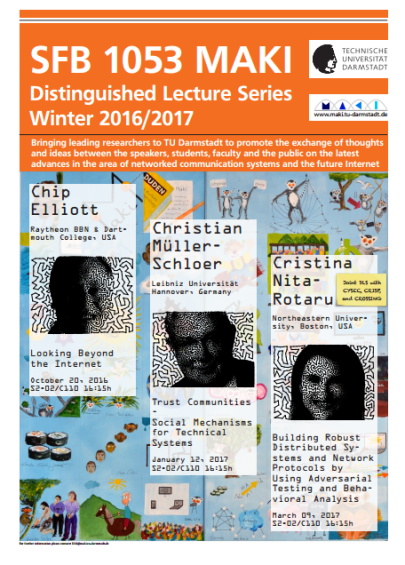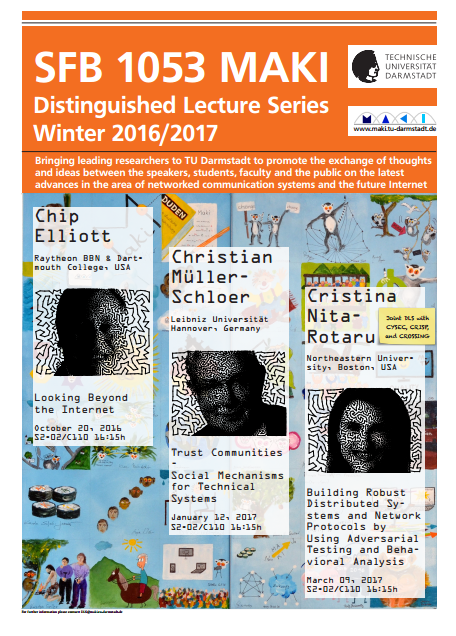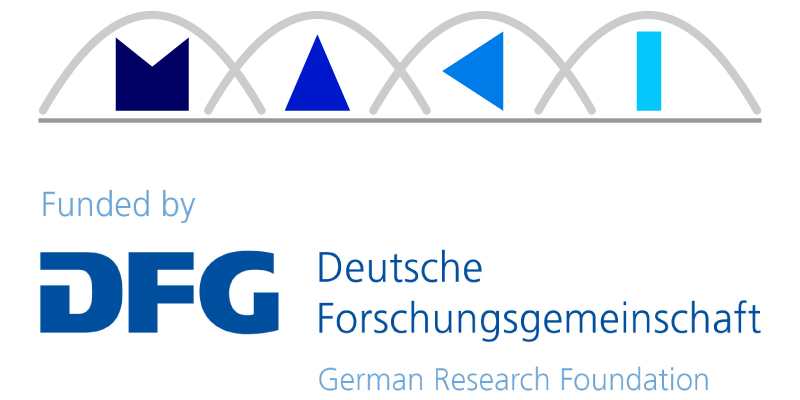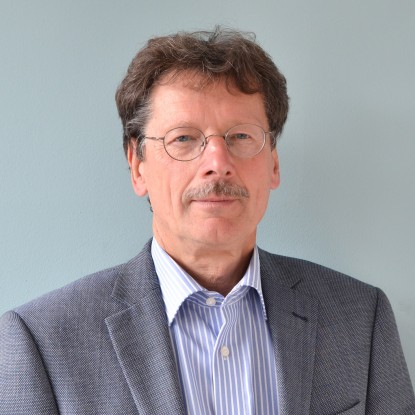Christian Müller-Schloer


Leibniz University of Hannover
12 January 2017, 04:15 pm
“Trust Communities – Social Mechanisms for Technical Systems”
Venue: S2|02 room C110 (Robert-Piloty building, Hochschulstr. 10, 64289 Darmstadt)
Abstract
Trust, fairness, reputation, forgiveness but also laws and sanctions are indispensible ingredients of human societies. Despite Dawkins’ “The Selfish Gene”, we are primarily social and cooperative animals, and this is for a good reason: Cooperative societies are more successful than collections of selfish agents, and social behavior pays off not only for the group as a whole but also for the individuals.
Technical systems resemble more and more our human societies: They are complex, consist of semi-autonomous subsystems (or “agents”), which are largely unknown and self-interested, and interact with each other. These systems are highly dynamic and open, hence impossible to rigidly define at design time and difficult to control at runtime. We will increasingly rely on self-organization mechanisms to make them adaptive and robust against changing requirements and environment. Therefore it is an obvious approach to transfer and utilize social mechanisms into technical systems.
The lecture discusses the prisoners’ dilemma and the Tragedy of the Commons to motivate the introduction of trust into technical systems. It shows how different forms of self-organized implicit and explicit Trust Communities (iTCs and eTCs) can improve the robustness of a multi-agent organization. An open Grid Computing system serves as an example.
While iTCs and eTCs greatly improve the system robustness in the presence of egoistic agent attacks there are certain global situations like a trust-breakdown (so-called Negative Emergent Behavior NEB), which require a more massive interference by higher-level authorities. The lecture will explain how norms and sanctions can help to recover from NEB states.
In an outlook we will compare the social mechanisms introduced so far with Elinor Ostrom’s (Nobel laureate in Economic Sciences 2009) rules for Enduring Institutions and discuss their applicability to future technical systems.
Bio
Christian Müller-Schloer studied EE at the Technical University of Munich and received the Diploma degree in 1975, the Ph. D. in semiconductor physics in 1977. In the same year he joined Siemens Corporate Technology where he worked in a variety of research fields, among them CAD for communication systems, cryptography, simulation accelerators and RISC architectures.
From 1980 until 1982 he was a member of the Siemens research labs in Princeton, NJ, U.S.A. In 1991 he was appointed full professor of computer architecture and operating systems at the University of Hannover. His institute, later renamed to Institute of Systems Engineering – System and Computer Architecture, engaged in systems level research such as system design and simulation, embedded systems, virtual prototyping, educational technology and, since 2001, adaptive and self-organizing systems.
He is one of the founders of the German Organic Computing Initiative, which was launched in 2003 with support of GI and itg, the two key professional societies for computer science in Germany. In 2005 he co-initiated the Special Priority Programme on Organic Computing of the German Research Foundation (DFG).
He is author of more than 200 papers and 14 books.
Present projects – predominantly in the area of Organic Computing – deal, among others, with topics like quantitative emergence and self-organization, organic traffic control, and social mechanisms in self-organizing agent communities.



